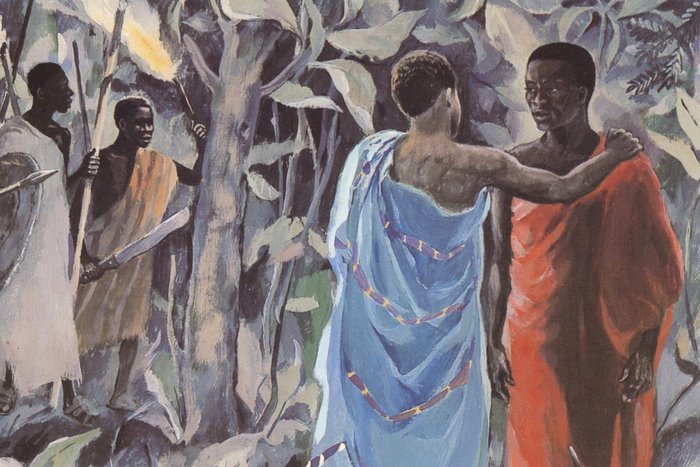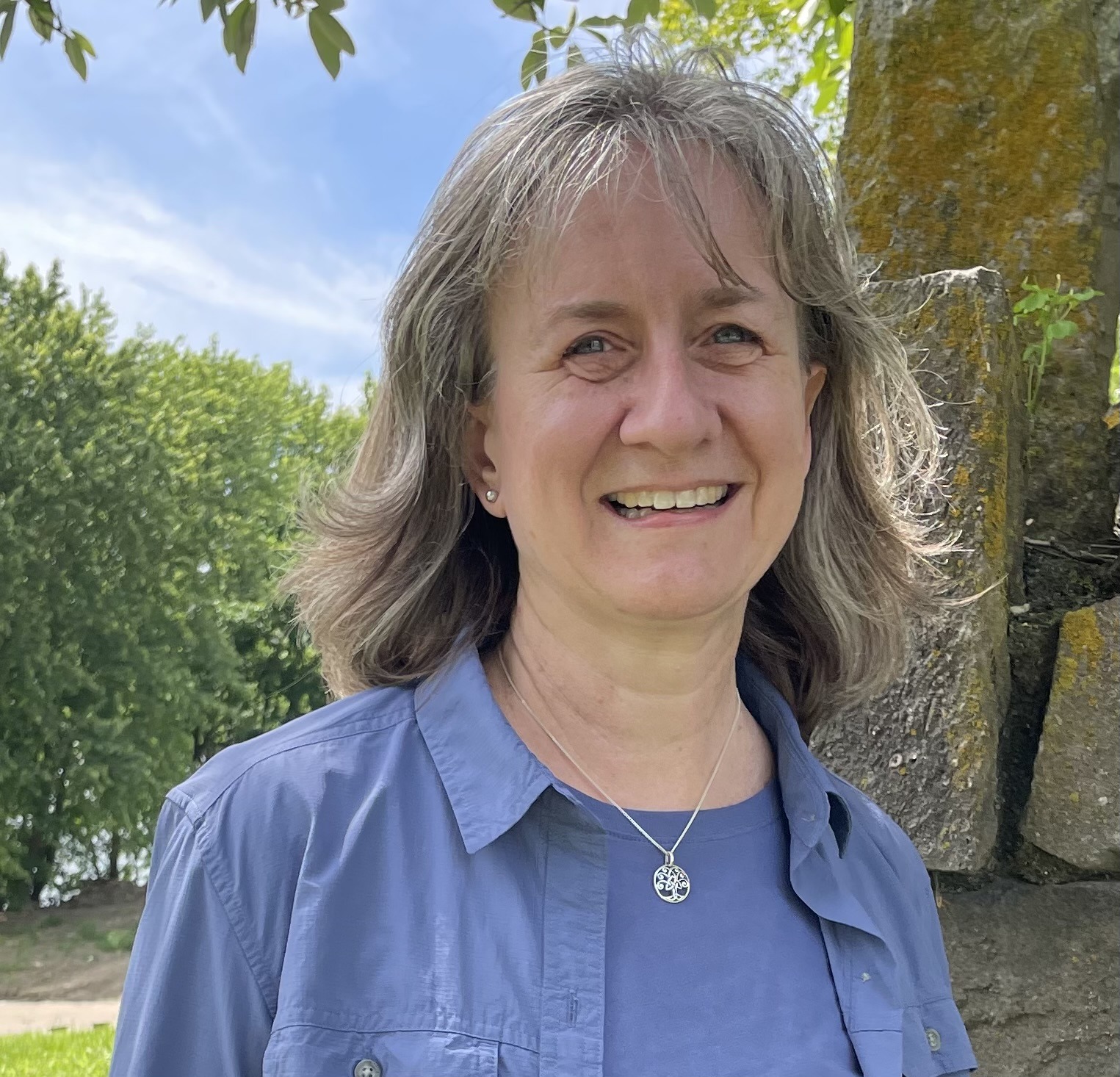
Mark 14:41-46 (RSV)
And he came the third time and said to them, “Are you still sleeping and taking your rest? It is enough; the hour has come. The Son of Man is betrayed into the hands of sinners. Rise, let us be going; see, my betrayer is at hand.” And immediately, even as Jesus said this, Judas, one of the twelve disciples, arrived with a crowd of men armed with swords and clubs. They had been sent by the leading priests, the teachers of religious law, and the elders. The traitor, Judas, had given them a prearranged signal: “You will know which one to arrest when I greet him with a kiss. Then you can take him away under guard.” As soon as they arrived, Judas walked up to Jesus. “Rabbi!” he exclaimed, and gave him the kiss. Then the others grabbed Jesus and arrested him.
Along the path we are walking, we haven’t gone very far. Perhaps just a few steps as Jesus walks over a final time to where the disciples are sleeping. Though the location may be the same as where we left off last week, it also seems miles away. Instead of the prayers of desperation, we now see a resolution in Jesus as he announces that “the hour has come.” The reason for the resolve is obvious—Judas is at hand with men to arrest Jesus.
Yet, Jesus seems to stand up too late. Here’s the reason to show no vulnerability and to turn away from those who may be faltering in their authority—betrayal. If there’s any sign of weakness, other people can use this flaw to take you down or climb over you.
For three years Jesus has been sharing his life with the disciples, including Judas. Intimate human life. Along with others in this small group, Judas has heard Jesus’ most private teachings and, moreover, he is in charge of the group’s treasury. Now, this follower turned traitor is handing his teacher over to be arrested, and with a kiss, thus making the pain of the betrayal more excruciating.
As we look at our own lives on campus and in the community, we too may have our own stories of betrayal.
- You learn the data supplied by a trusted colleague is plagiarized. While they leave for a better position, you take the fall.
- After working with a student all semester to help them learn the material in your class, that student writes a letter to your department chair complaining that your class is too hard and you didn’t make any efforts to support them.
Even thinking of these stories now brings up feelings of insecurity, anger—maybe even shame that this could have happened to you. If only you had protected yourself better. Closed others out of your life more securely. You promise yourself that you will do whatever is necessary to prevent this from happening again.
There are times when we do need to protect ourselves. Jesus himself did this early in his ministry as he asked the disciples and others to tell no one about him in certain situations. However, this isn’t Jesus’ response here. He even knew this betrayal was coming and still he let Judas go ahead. The cost of stopping this betrayal was the future of God’s Kingdom.
Wisely opening ourselves up to others may not determine the future of the world, but it may determine whether our not we truly live abundant lives. In his latest book, Strong and Weak, Andy Crouch explores how having both high authority (capacity for meaningful action) and high vulnerability (exposure to meaningful risk) lead to the places of greatest flourishing.
Yes, sometimes that means we put ourselves in places where others can betray us. But it also allows for new possibilities of research ideas or artistic creations. Maybe it could even point someone to the Good News.
Where can you walk resolutely into a situation of meaningful risk today?
Jesus, help us walk in your steps.
Image credit: JESUS MAFA. Kiss of Judas, from Art in the Christian Tradition, a project of the Vanderbilt Divinity Library, Nashville, TN.http://diglib.library.vanderbilt.edu/act-imagelink.pl?RC=48300 [retrieved March 11, 2017].

Jamie serves with InterVarsity Graduate and Faculty Ministries as an Associate Director of Faculty Ministry and as interim Director of the Emerging Scholars Network. Among other things, in this work she enjoys the opportunity to put into practice her doctoral research in literary pilgrimage and training in spiritual direction. She also ministers with the local faculty community at the University of Cincinnati.

Leave a Reply